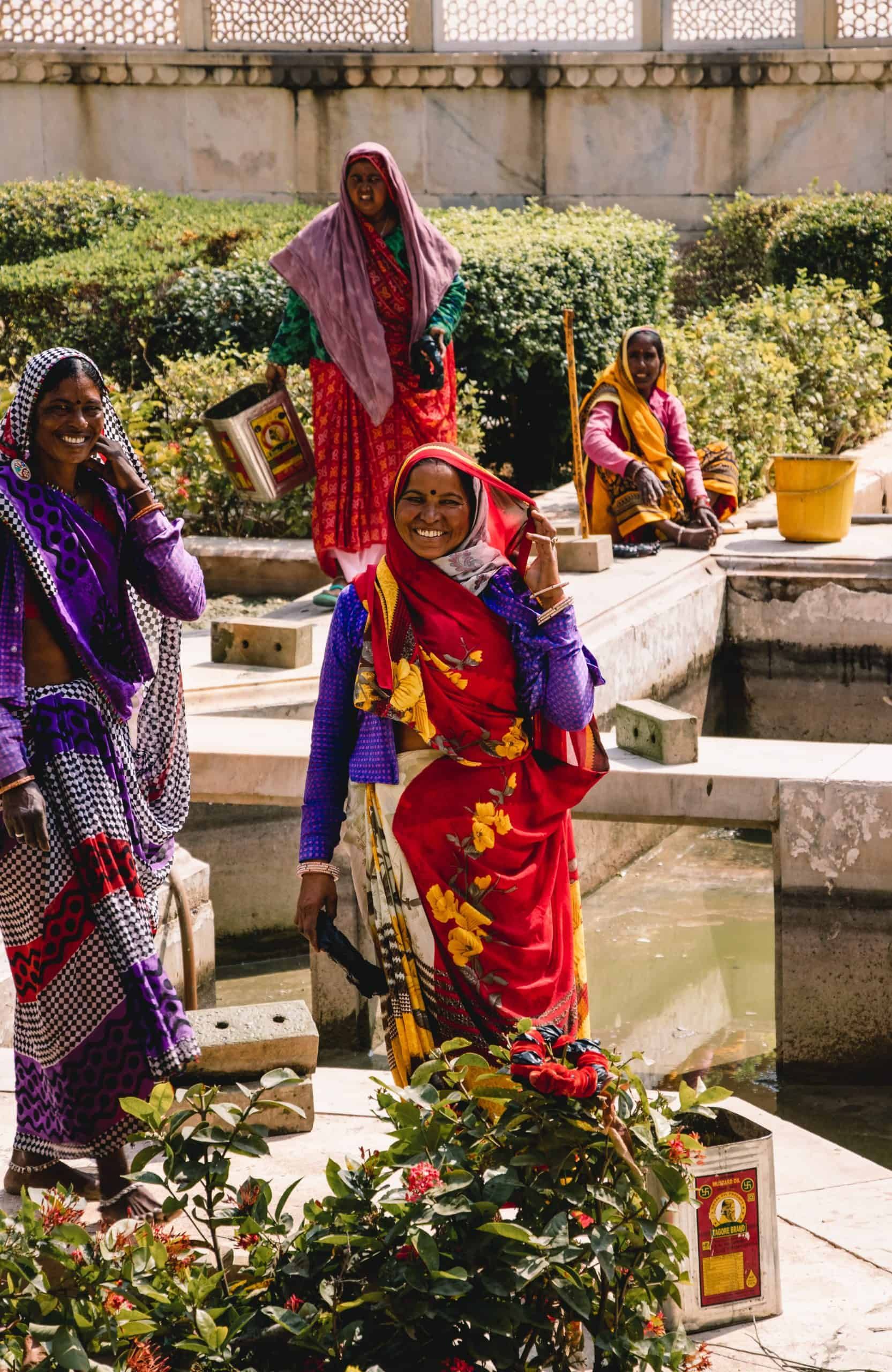Main Navigation
India
Overview
India has prioritized resource efficiency as a strategy for growth and environmental well-being, most notable through its National Resource Efficiency Policy.
The Indian economy is one of the fastest-growing in the world, but after recording GDP growth of around 7-8 percent for several years, there has been a comparative slowdown, with manufacturing and international trade tapering. India also faces acute environmental challenges — climate variability, poor air quality, over-exploitation of groundwater, water scarcity, increasing inland and coast salinity, degradation of land, and increased intensity of climate extreme events. What’s more, such challenges have adversely affected productivity and economic performance, resulting in increased poverty, unemployment and poor health.
India has worked to tackle this through several policies and programmes, making efforts to support achievement of the SDGs and its NDCs. Specific to green economy, India has embraced a large-scale, integrated economy-wide approach, including circular economy and sustainable consumption and production. Aimed at enhancing existing initiatives on a national and sub-national level, India joined PAGE in 2018 with the Ministry of Environment, Forest and Climate Change (MoEFCC) leading the engagement, with the country’s efforts to increase resource efficiency providing a specific entry point for PAGE support.
Through previous work from 2017, MoEFCC identified resource efficiency as a strategy to minimize trade-offs between growth, resource constraint and environmental well-being, and began developing a National Resource Efficiency Policy. This policy aims to contribute to India’s national Inclusive Green Economy, sustainability and climate targets.
During the inception phase in 2018 with PAGE, these goals were further solidified and priority areas were further defined through consultations and a green economy stocktaking process. Relating to policymaking and capacity development, some of these priorities include mainstreaming IGE and SDGs into state-level economic development planning, supporting sustainable public procurement and eco-labeling and support to modernize micro-small- and medium-sized enterprises (MSMEs) particularly in manufacturing.
COVID-19 Impacts and the Way Forward
Moving forward with the work in the inception phase was challenged in 2020 with the COVID-19 pandemic. India was affected significantly and experienced a substantial economic crisis. In response to the situation, the Government released a COVID-19 economic recovery package and subsequently, provided an updated framework for future PAGE work. In November 2020, India’s National Steering Committee met and endorsed a way forward for PAGE work, marking a milestone for the end of the inception phase and the start of a full PAGE programme from 2021.
PAGE Milestones
- 2018
India joins PAGE
Joint PAGE inception mission and two-day workshop held in New Delhi
Policy Brief on Resource Efficiency launched by the Ministry of Environment, Forest and Climate Change (MoEFCC)
- 2019
National coordinator hired to support PAGE work
Three sub-national workshops related to the stocktaking held to identify sub-national priorities
National workshop conducted in New Delhi to further refine the priorities identified in the sub-national consultations
A draft green economy stocktaking study developed
“Task Force on Environmental Sustainability” formed with PAGE assistance, to support green transition of Indian Railways
- 2020
National Steering Committee for PAGE India established
PAGE invited to lead a thematic session at the Green Economy Coalition’s annual global meeting in India
PAGE co-hosted webinar on ‘Building Back Better: Greening the Economic Recovery Package of the Government of India’
Sustainability training for Indian Railways officials
First official National Steering Committee meeting and launch of Stocktaking Study
Progress in 2020: A Snapshot
Laying foundations
From initial stakeholder consultations and analytical work, a National Steering Committee (NSC) was formally established in January 2020 […]
From initial stakeholder consultations and analytical work, a National Steering Committee (NSC) was formally established in January 2020 by the Ministry of Environment, Forest and Climate Change (MoEFCC) to direct and supervise PAGE work in India. Key government institutions in this group include the Ministries of MSMEs, of Labour and Employment, of Finance and of Skill Development and Entrepreneurship as well as the government’s national public policy institute, Niti Aayo, and stakeholders representing civil society and the private sector.
A first official NSC Meeting in November 2020 offered a platform to present the 2019 stocking report, endorse planning for PAGE work and solidify priorities, which includes a focus on sustainable public procurement, resource efficiency, just transitions, institutional capacity-building and IGE-related national and state planning.
Promoting green economy & green economy recovery
PAGE India was involved in several outreach activities together with other development partners in 2020 to promote inclusive green […]
PAGE India was involved in several outreach activities together with other development partners in 2020 to promote inclusive green economy efforts, making linkages to how economies could recover from COVID-19 impacts with sustainability objectives a core priority. For example, PAGE India led a half-day session on Inclusive Green Economy at the Green Economy Coalition’s annual global event on 6 February, focusing priorities for supporting local green enterprises to drive the transition to green economies. Additionally, on 6 July the Climate Policy Initiative hosted a webinar organized by PAGE and Development Alternatives on ‘Building Back Better: Greening the Economic Recovery Package of the Government of India’, which highlighted methods to green India’s Economic Recovery Package and make it more inclusive.
Supporting green economy recovery
PAGE India has developed a comprehensive analysis of the country’s COVID-19 recovery package regarding sustainability and […]
PAGE India has developed a comprehensive analysis of the country’s COVID-19 recovery package regarding sustainability and green parameters. The subsequent recommendations included promoting sustainable agriculture, sustainable public procurement; resource efficiency and circularity across sectors and supply chains; green jobs and green local enterprises.
Economic recovery presents an opportunity for India to link its response efforts with a clean energy transition, nature-based solutions and India’s Nationally Determined Contribution (NDC). Specific methods could include e-mobility or promoting off-grid renewable energy for applications such as agricultural and vaccine cold storage.
Developing expertise for sustainable railways
In 2020, PAGE supported the National Academy of Indian Railways (NAIR) in developing training modules and organising a pilot […]
In 2020, PAGE supported the National Academy of Indian Railways (NAIR) in developing training modules and organising a pilot training programme from 10 to 17 July on environmental sustainability for 60 Indian Railways officials. The programme strengthened the capacities in Indian Railways in the area of environmental sustainability across the ranks of decision makers and implementers and also supported the mainstreaming of environmental sustainability into NAIR training procedures by training the faculty staff. A variety of topics were covered including aspects of green transport, resource efficiency, waste management, green building, sustainable public procurement, circular economy and India’s NDC and SDG targets.




